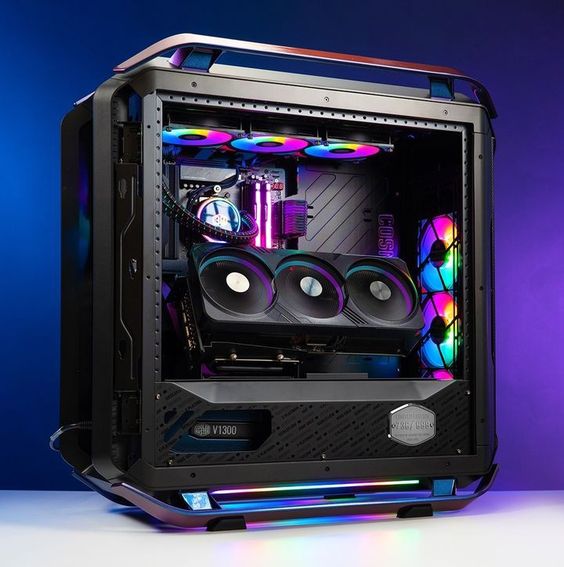Gaming PCs: The Heart of Your Gaming Setup
Gaming PCs are specially designed computers tailored for playing video games, equipped with high-performance components that provide an engaging gaming experience. A well-constructed gaming PC can handle modern titles at high resolutions and frame rates, offering an edge in competitive gaming. Here’s a closer look at the essential components that make up a gaming PC.
1. Processors (CPUs)
The CPU is the brain of your gaming PC. It processes instructions from the game and runs various background tasks. Modern gaming PCs usually feature multi-core processors, such as Intel Core i7 or AMD Ryzen 7, which can handle demanding games and multitasking effectively. When shopping for a gaming PC, look for:
- Core Count: More cores mean better multitasking capabilities. A six-core CPU is a good starting point, but eight or more is ideal for gaming and streaming simultaneously.
- Clock Speed: Measured in GHz, a higher clock speed means faster processing. Look for CPUs with a base speed above 3.0 GHz.
2. Graphics Cards (GPUs)
The GPU is arguably the most crucial component for gamers. It handles rendering graphics and is responsible for the visuals in your games. The best GPUs on the market, like the NVIDIA GeForce RTX 3080 or AMD Radeon RX 6800 XT, support high frame rates and stunning graphics quality. Key factors include:
- VRAM: More VRAM allows for better performance at higher resolutions. Look for at least 8GB of VRAM for modern gaming.
- Ray Tracing: This technology simulates realistic lighting and shadows, adding a new layer of realism to your gaming experience.
3. Memory (RAM)
RAM temporarily stores data that the CPU and GPU need for quick access. For gaming, 16GB of DDR4 RAM is generally considered the minimum for smooth gameplay. However, for serious gamers or those who multitask, 32GB or more is recommended.
4. Storage Solutions
Fast storage is essential for reducing load times and improving system responsiveness. Most gaming PCs today utilize SSDs (Solid State Drives) alongside traditional HDDs (Hard Disk Drives):
- SSDs: They are faster and significantly reduce loading times. A 1TB NVMe SSD is ideal for storing your operating system and frequently played games.
- HDDs: While slower, they offer larger storage capacities at a lower price. Use an HDD for additional storage, such as music, videos, and less frequently played games.
5. Cooling Systems
High-performance components generate significant heat, making effective cooling crucial for maintaining optimal performance and longevity. There are two main types of cooling solutions:
- Air Cooling: Involves using fans and heatsinks. While cost-effective, they may be less efficient in high-performance setups.
- Liquid Cooling: Provides better cooling and quieter operation but comes at a higher price point. A liquid cooling system can be particularly beneficial for overclocked CPUs and GPUs.
6. Aesthetic and Build Quality
Many gamers prefer gaming PCs with RGB lighting and sleek designs that complement their gaming setups. Look for tempered glass panels and customizable RGB lighting options to enhance the overall aesthetic of your build.

